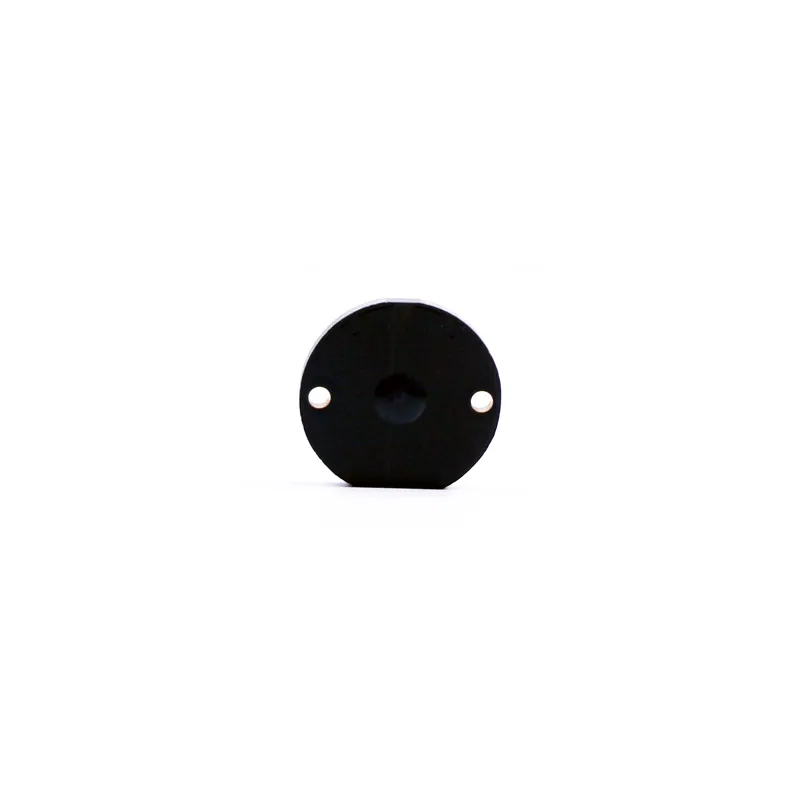Industrial Tags RFID
NGAAHI FAʻAHINGA
Ngaahi koloa ʻoku fakaʻilongaʻi

RFID Cable Tag
RFID Cable Tag offer benefits in cable management, Muimuiʻi ʻo e logistics,…

RFID Library Tag
ʻOku fakaʻaongaʻi ʻe he RFID Library Tag ʻa e tekinolosia RFID ke ʻotometiki hono tanaki ʻo e fakamatala,…

RFID foo
Mo ha diameter ʻe 20mm, ko e HF NTAG® ʻoku fakatefito ʻi he PPS 213 fo…

RFID Clothing
The 10-Laundry7010 RFID Clothing label is a reliable and efficient…
Ngaahi Ongoongo Fakamuimuitaha

Fakamatala nounou:
Industrial Tags RFID are electronic tags that transmit and store data using radio waves. In industrial production situations, they may do non-contact automated identification and data collection. This tag is made up of a chip and a coupling element. To identify the target item, each RFID tag carries a distinct electrical code. RFID tags are classified as passive, longomoʻui, or semi-active based on the sort of power they use. Each form of tag is significant in a variety of application situations. RFID tags are extensively utilized in the industrial area for traceability systems, production tracking, asset management, and other purposes. Human error is decreased and production efficiency and management levels are raised via the rapid and precise identification of things. In addition, RFID tags provide excellent anti-interference characteristics, a regulated reading distance, great data security, and the ability to function steadily in challenging industrial conditions.
Vahevahe kimautolu:
Fakaikiiki ʻo e koloa
Industrial Tags RFID are electronic tags that transmit and store data using radio waves. In industrial production situations, they may do non-contact automated identification and data collecting. This tag is made up of a chip and a coupling element. To identify the target item, each RFID tag carries a distinct electrical code. RFID tags are classified as passive, longomoʻui, or semi-active based on the sort of power they use. Each form of tag is significant in a variety of application situations. RFID tags are extensively utilized in the industrial area for traceability systems, production tracking, asset management, and other purposes. Human error is decreased and production efficiency and management levels are raised via the rapid and precise identification of things. In addition, RFID tags provide excellent anti-interference characteristics, a regulated reading distance, great data security, and the ability to function steadily in challenging industrial conditions.

Functional Specifications:
RFID Protocol: EPC Class1 Gen2, ISO18000-6C Frequency: (US) 902-928MHz, (EU) 865-868MHz IC type: Alien Higgs-3
Manatu: EPC 96bits (Up to 480bits) , USER 512bits, TID64bits
Write Cycles: 100,000times Functionality: Read/write Data Retention: Up to 50 Years Applicable Surface: Metal Surfaces
Lau ʻa e Range :
(Fix Reader)
Lau ʻa e Range :
(Handheld Reader)
320 cm, (US) 902-928MHz, on metal
280 cm (EU) 865-868MHz, on metal
240 cm, (US) 902-928MHz, on metal
230 cm (EU) 865-868MHz, on metal
Warranty: 1 Year
Physical Specification:
Lahi: Diameter 20mm, (Hole: D2mm*2)
Matolu: 2.0mm without IC bump, 2.8mm with IC bump
Naunau: FR4 (PCB)
Colour: ʻUliʻuli (Kulokula, Pulu, Lanu mata, Hinehina) Mounting Methods: Adhesive, Screw
Weight: 1.9g
Fua:
MT026 D20U5:
MT026 D20E8:
Environmental Specification:
IP Rating: IP68
Storage Temperature: -40°С to +150°С
Mafana ʻo e Ngaue: -40°С to +100°С
Certifications: Reach Approved, RoHS Approved, CE Approved
ʻOta information:
MT026 D20U5 (US) 902-928MHz, MT026 D20E8 (EU) 865-868MHz


![Rfid Tag manufacturer [Wholesale | OEM | ODM]](https://www.fjrfidfactory.com/wp-content/uploads/2024/04/logo.webp)

















